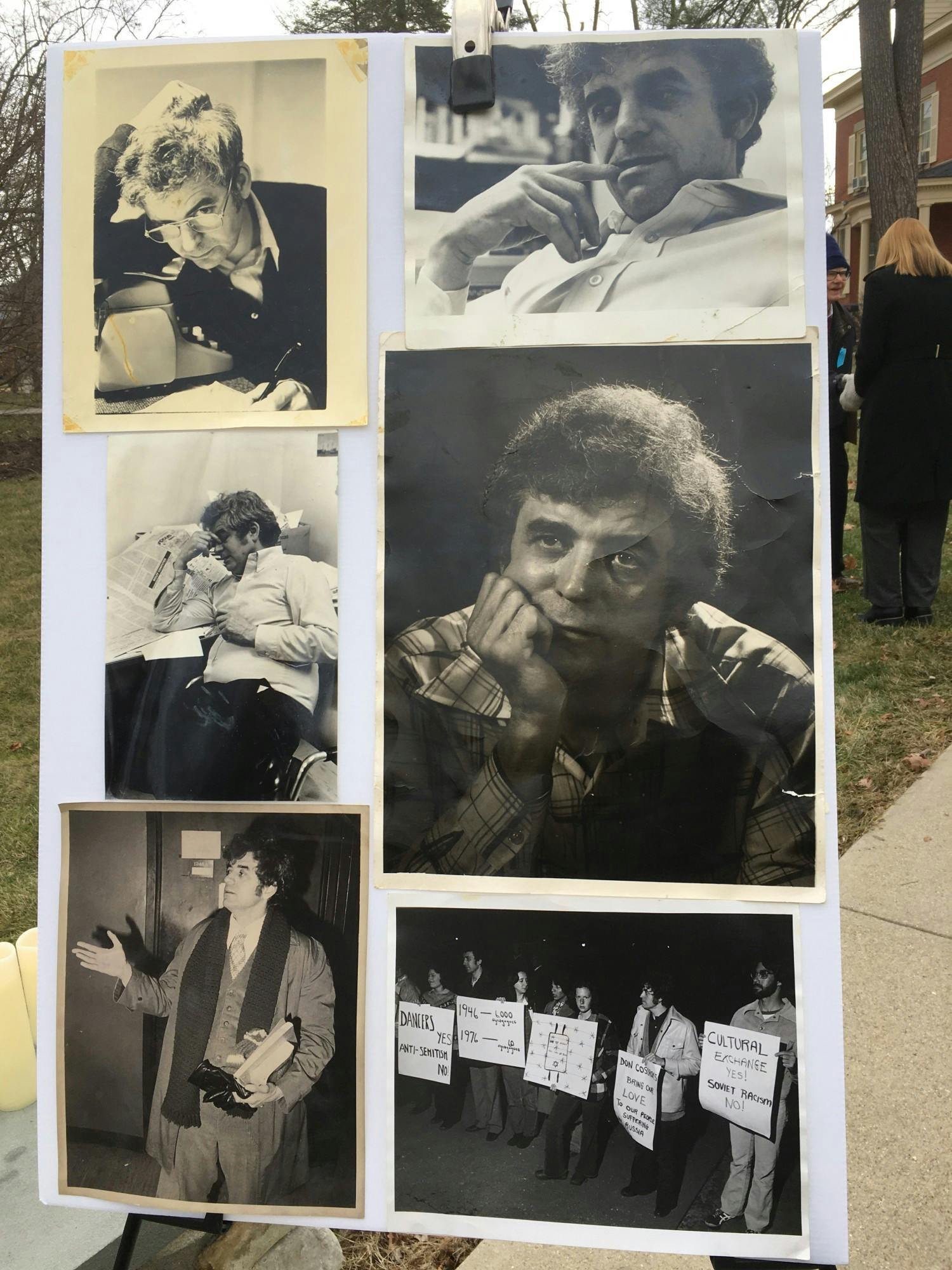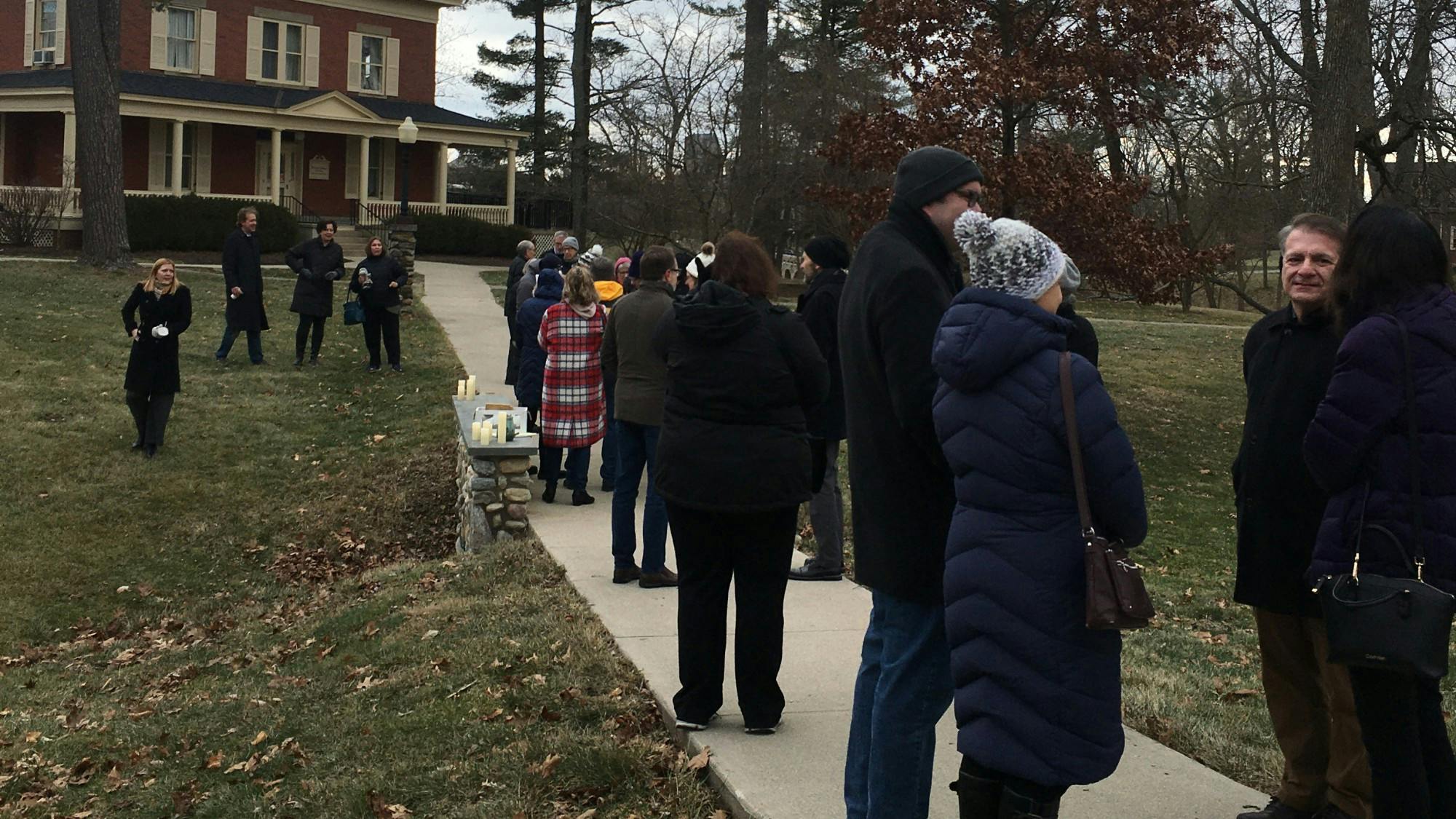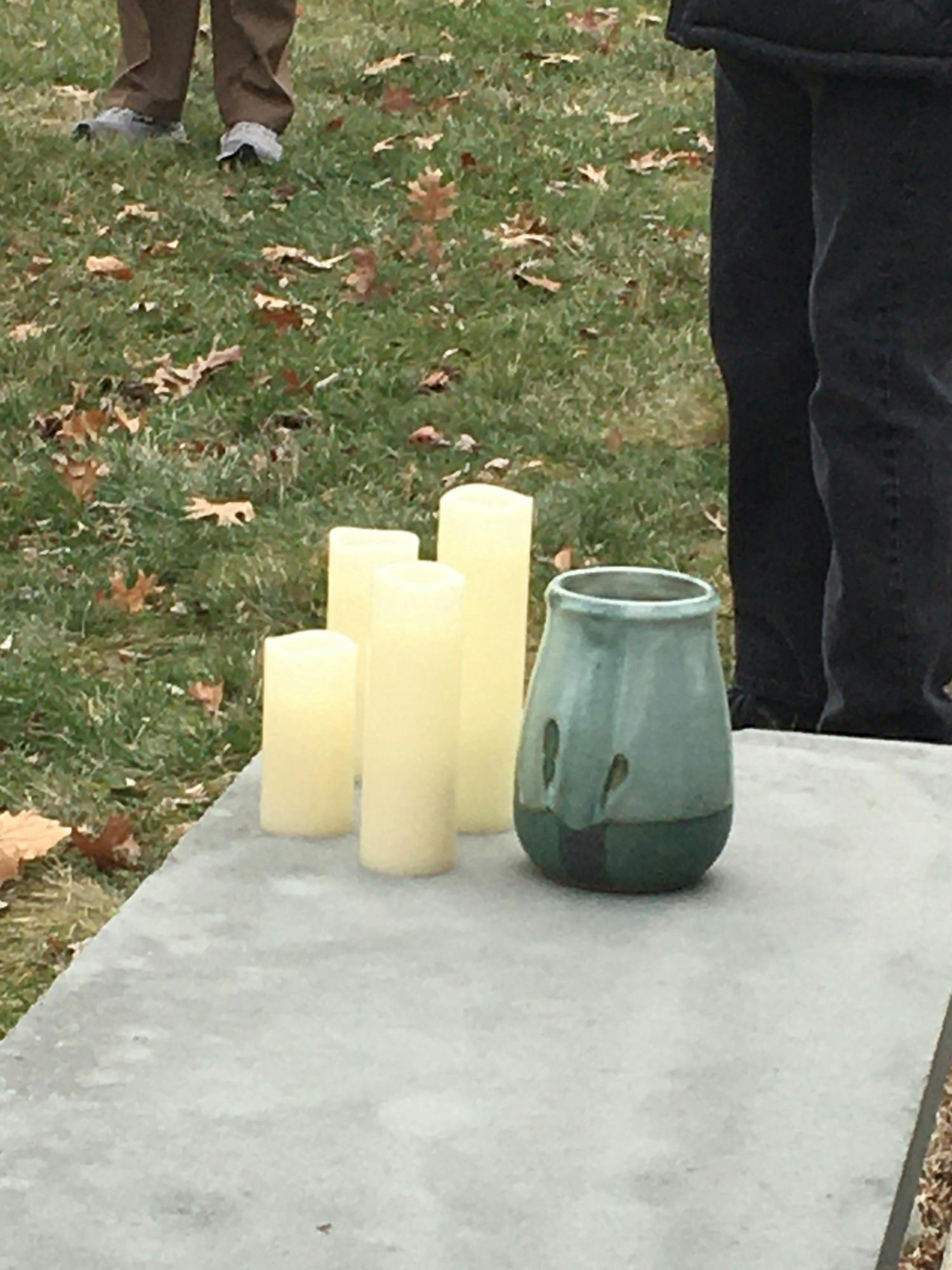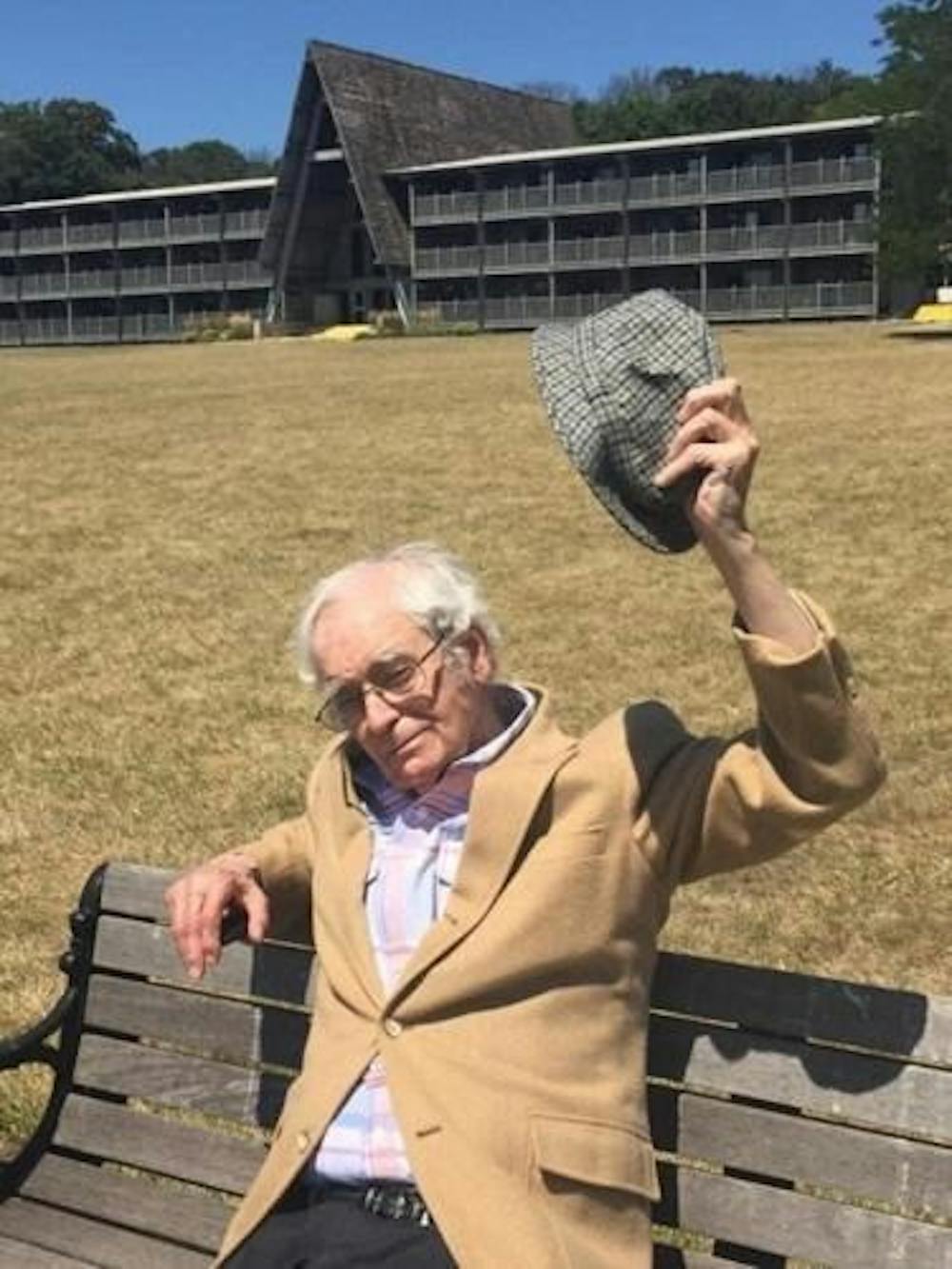Hugh Joseph Morgan, an esteemed professor emeritus of English and journalism who spent 23 years teaching at Miami University, died on Dec. 6, 2022, in Cincinnati. He was 86.
Morgan joined Miami’s English department in 1980 following a successful career as a correspondent for the Associated Press. Former students, colleagues and friends said he was a remarkably selfless, kind-hearted and compassionate man.
“[Hugh] was probably the most empathetic and caring professor that you could ever hope to have,” said Joe Sampson, a senior clinical lecturer in Miami’s Department of Media, Journalism and Film, and a student of Morgan’s in the early ’90s. “He really allowed students to be themselves in the classroom. That might not sound like a big thing, but it really is.”
Don Daiker, a professor emeritus of English, was a long-time colleague of Morgan at Miami. Daiker said helping students was Morgan's passion.
“I’ve never known a teacher who spent more time with students than Hugh,” Daiker said. “I’ve never known a teacher who had greater affection for his students than Hugh.”
Morgan’s office hours became a popular destination for his students, with many of them often waiting in a long line to see him.
“He would hold office hours at Bachelor Hall on Saturdays and Sundays,” Sampson said. “I’ve never known a professor to hold office hours on weekends. There was a line out the door … because he had earned their trust.”
Sampson said many students often took advantage of the weekend hours simply to have a conversation with Morgan.
“Most of the time I don’t think [Morgan] was even talking about assignments or what [students] were doing in class,” Sampson said. “He was asking them about their life outside of school, their family, where they were from. He was just a great mentor and a kind and caring person, and that’s what I remember.”
Fred Reeder Jr., assistant clinical lecturer in Miami's Media, Journalism & Film department and student of Morgan’s in the ’90s as well, said he wouldn't be who he is or where he is today without Morgan.
“I struggled as an undergrad at Miami,” said Reeder, who also serves as the faculty adviser for The Miami Student. “I was directionless. Hugh wanted me to be a good journalist, certainly, but he cared more that I was just simply doing all right. Now that I'm a teacher, that's what I focus on the most with my students. I always try to be just like Hugh. It's the best way I know to honor who he was.”
Morgan graduated with a B.A. in journalism from the University of Oklahoma in 1958 and earned his M.A. there in 1967.
Enjoy what you're reading?
Signup for our newsletter
In his career as a professional journalist, Morgan worked as a correspondent for the Associated Press in several offices across the United States. He spent time in New Orleans, El Paso, Jackon, Lansing and Detroit. Then, he earned a doctorate in American history from Southern Illinois University in 1985.

The many faces of Dr. Hugh Morgan, professor emeritus of journalism at Miami University. Students would joke with Morgan about his disheveled appearance: hair that would need combed, a shirt that would need tucked in, glasses that would sometimes sit askew on his face.
According to Morgan’s obituary, Miami’s journalism program was struggling when Morgan joined the university’s English Department in 1980. Through his extensive experience as a journalist and his tireless commitment to his students, Morgan proved to be a key contributor to the program’s resurgence.
In recognition of Morgan’s accomplishments, Miami seniors and Associated Student Government voted him as the university’s Most Outstanding Professor in both 1996 and 2000.
Beyond his time in the classroom, Morgan found many other ways to make a positive impact on those around him.
“A few years before [Morgan] died, he met a student at the student center, and he started talking to her and found out that she was a first [generation] college student and that she had a really old computer that was about to die,” said Jennifer Loeb, a student of Morgan’s in the late ’80s and a lifelong friend. “He found out her name and her dorm, and he had a brand new computer and printer delivered to her that week. He was just that kind of person.”
Morgan also dedicated much of his life to issues of equality, meditating frequently on the subject using his “four pillars” of meditation: peace within the world, racial equality, gender equality and developing one’s humanity and responsibility.
He did more than meditate on these pillars. Morgan spent his summers in the 1990s working alongside students to develop the Miami Tribe of Oklahoma’s first newspaper. The same newspaper format is still utilized by the Tribe today.
After his retirement in 2003, Morgan remained in the Oxford area for the rest of his life.
“[Kofenya] was where he liked to go,” Loeb said. “When he was able to, he would take his laptop and write there. It was really his social spot in retirement.”
Loeb was also Morgan’s power of attorney, and he gave her specific instructions for how to handle celebrations of his life. Of course, those plans included Kofenya.
“What he said was ‘I don’t want a funeral. I don’t want to be buried, and I don’t want a big, fancy service or memorial, but it’s OK if people gather at [Kofenya] and share memories,’” Loeb said.
Honoring Morgan’s wishes, Loeb organized a celebration of his life that took place on Saturday, Jan. 14.

Colleagues, friends and former students gathered at a stone bridge near Bachelor Hall at 11 a.m. Saturday, Jan. 14, for a celebration of life in honor of journalism professor emeritus Dr. Hugh Morgan.
The day began with a ceremony to spread Morgan’s ashes at a small stone bridge near Bachelor Hall. Per Morgan’s permission, friends then gathered at Kofenya in the afternoon to share memories. The celebration ended with a dinner at Hueston Woods, with many choosing to join in eating Morgan’s favorite meal: grilled cheese, fries and coffee.

Morgan taught journalism at Miami for more than two decades and invigorated a foundering program. His ashes, held in this container, were spread at a. stone bridge near Bachelor Hall on Saturday, Jan. 14
Loeb said Morgan’s lessons are timeless.
“He was one of the few rare people who was just completely selfless, empathetic and compassionate, and who cared about everyone else more than himself,” she said. “He really left a lasting impact with his students as someone who shaped the direction of their careers and their lives as humans, [demonstrating] what it means to be human, to be a good friend, and to show compassion to others. He taught that to thousands of people.”




